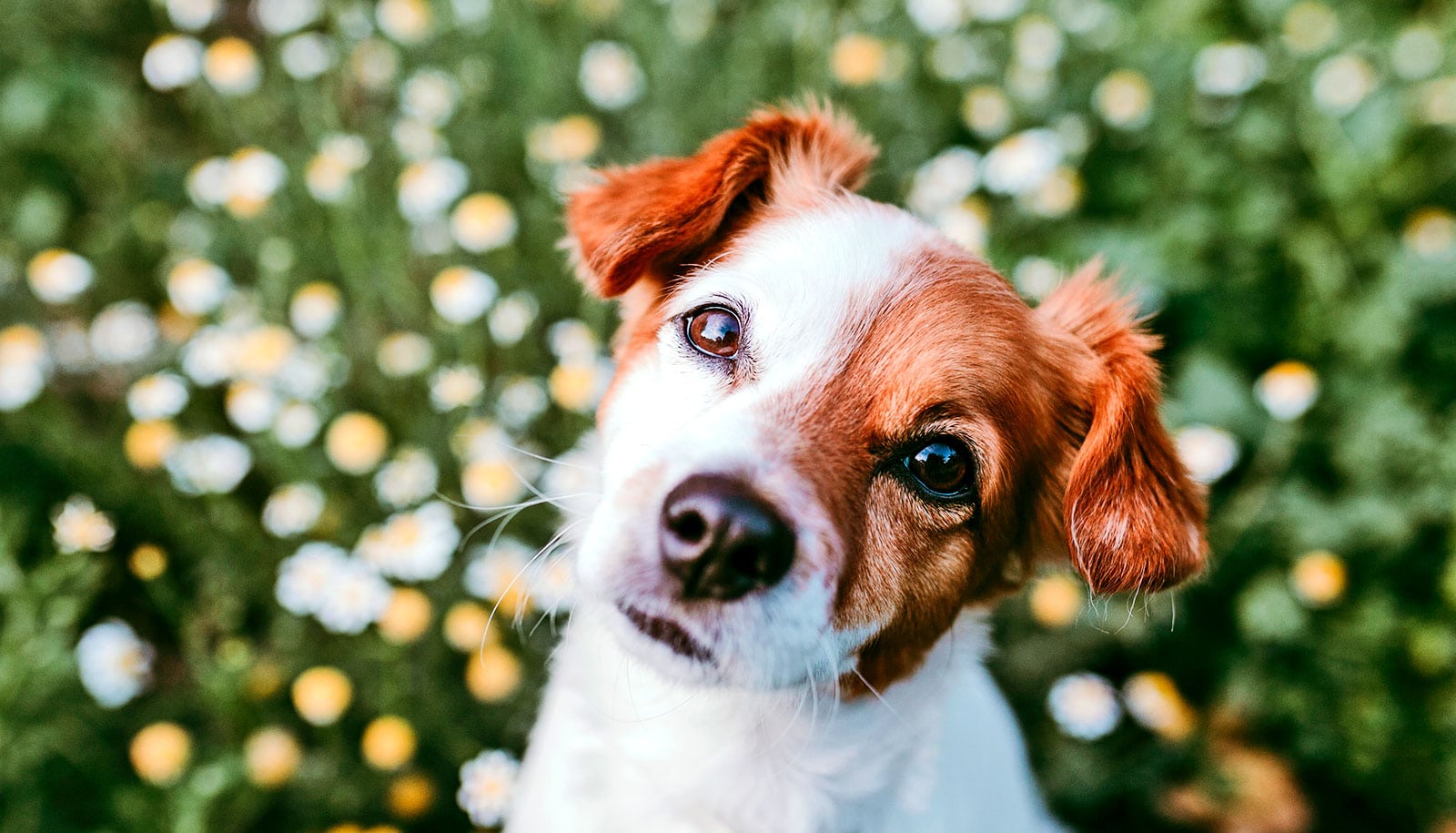
Dogs are capable of learning the instruction “do that again,” and can flexibly access memories of their own recent actions—cognitive abilities they were not known to possess, researchers report.
“…we found evidence that dogs are capable of forming abstract concepts.”
Teaching a dog to sit or roll over? That’s easy. But what about that cute head tilt that you’ve never seen before, which happened while your phone was out of reach? Now you want a picture.
But how do you get a dog to repeat an action it hasn’t been trained to perform? For dogs taught to “think back” on cue, you just need to ask, the new study shows.
“We found that dogs could be trained to repeat specific actions on cue, and then take what they’d learned and apply it to actions they had never been asked to repeat,” says Allison Scagel, a graduate student in the University at Buffalo psychology department at the time of the research, and corresponding author of the study in the Journal of Comparative Psychology.
“Our findings showed that they were able to apply the concept of repetition to new situations. More generally, we found evidence that dogs are capable of forming abstract concepts.”
Historically, there has been a notion that conscious awareness of past personal experiences is the exclusive domain of humans, but recent research isn’t supporting that conclusion, Scagel says.
“Our study shows that dogs are capable of conceptualization, placing them in an expanding category of other animals that includes bottlenose dolphins and chimpanzees.”
The findings present new flexible training possibilities for dogs, Scagel says.
“Dogs can do more than learn the relationship between a person’s cue and which specific trick they should perform,” she says. “They can understand the concept of repetition: Whatever you just did, do that again. It can apply to anything they do.”
Animals are often tested on their ability to recall things in the external environment they have recently observed, such as objects, sounds, or scents. Memories of actions are different because they’re not outwardly perceivable. Memories are entirely internal; they are purely mental representations of previous personal experiences that can be recalled in ways that might influence what an animal chooses to do in the future.
For this study, the researchers looked at dogs’ memories of their own recently performed actions to determine if they could voluntarily think back to what they had just been doing and reproduce those actions.
Three dogs participated: Todd, a male long-haired chihuahua belonging to Scagel; and two female golden retrievers—Aspen, belonging to an acquaintance of Scagel’s, and Layla, belonging to Scagel’s coauthor, Eduardo Mercado III, a professor of psychology at the University at Buffalo.
Traditional dog training is cue and response. When dogs hear or see a trained cue, they respond with a behavior associated with that cue. For a baseline, the researchers started training the dogs in that fashion, with simple cues like spin in a circle, lie down, or walk around an object.
The dogs then learned a separate repeat cue (the word “again” accompanied by a hand gesture), which instructed them to reproduce the action they had just completed. To assess whether the dogs had actually learned a general concept of repeating recent actions, they were asked to repeat novel actions that they had never been asked to repeat before. Despite never being trained to repeat these actions, the dogs passed this test.
“This is an important step toward a greater understanding of how other species form abstract concepts,” says Scagel. “And we’re learning that humans aren’t that cognitively unique after all.”
Source: University at Buffalo